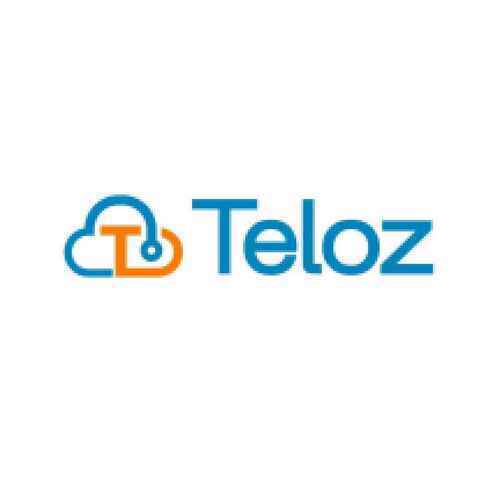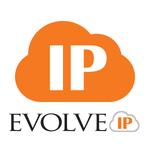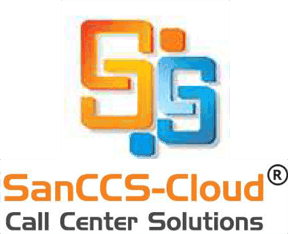What Is Cloud Contact Center Solutions?
Cloud Contact Center Solutions are a sort of software platform that enables businesses to handle customer interactions such as calls, emails, chats, and social media messages in a cloud environment. This means that a third-party supplier hosts all of the necessary infrastructure, hardware, and software on remote servers, reducing the need for organizations to invest in costly on-site equipment.
Scalability is one of the primary advantages of employing a cloud-based contact center solution. With a traditional on-premise contact center, firms must forecast their peak call volume and invest in infrastructure accordingly. If there is an unexpected increase in call volume, they may have to deal with insufficient resources or spend additional costs to modernize their systems.
On the contrary, cloud contact centers can easily scale up or down in response to demand, providing optimal resource use and cost savings. Aside from scalability, cloud contact center solutions have the advantage of being easily accessible. With remote work becoming the norm, cloud-based technologies allow agents to access the platform from anywhere with an internet connection.
This enables a more flexible and efficient workforce, resulting in higher productivity and customer satisfaction. Furthermore, cloud contact center systems include additional capabilities such as real-time analytics, call routing, and customer data management, allowing organizations to improve the customer experience and make smarter decisions.
Businesses can link these technologies with other systems, such as CRM software, to improve the overall efficiency and efficacy of client interactions. Finally, the pay-per-use price model of cloud contact center systems makes them an affordable option for enterprises of all sizes. Instead of paying a large upfront fee, businesses only pay for the resources and capabilities they use, making it a cost-effective choice for those just getting started or with a variable call traffic.
In a word, cloud contact center solutions provide businesses with a more cost-effective, adaptable, and efficient approach to manage client contacts. With their extensive features, scalability, accessibility, and pay-per-use approach, they are quickly becoming a popular alternative for organizations trying to improve customer service and stay ahead of the competition.
What Are The Recent Trends In Cloud Contact Center Solutions?
Latest Trends in Cloud Contact Center Solutions:
1. Omnichannel Assistance: One of the most significant current trends in cloud contact center systems is the shift to omnichannel assistance. With the rise of communication channels such as social media, messaging apps, and email, customers want to be able to contact businesses via their chosen methods. Cloud contact center solutions now provide seamless integration of these channels, resulting in a uniform and integrated customer experience across many touchpoints.
2. Use Of AI And Automation: Another notable development is the rising use of AI and automation in cloud contact centers. These technologies can handle mundane and repetitive activities, allowing agents to focus on more difficult problems. AI-powered chatbots and virtual assistants may also handle large volumes of client inquiries, reducing response times and increasing customer satisfaction.
3. Personalization And Customer Analytics: Cloud contact center systems now include advanced customer analytics capabilities that can provide insights into customer behavior and preferences. This data can be utilized to personalize interactions, making them more meaningful and successful. Personalization also increases client engagement and loyalty.
4. Scalability And Flexibility: As businesses develop, their customer service requirements change. Cloud contact center solutions are scalable, allowing businesses to simply add or remove capabilities and scale up or down as needed. This adaptability allows firms to quickly respond to changing client demands, without the constraints of traditional on-premise solutions.
5. Integration With CRM Systems: Cloud contact center solutions increasingly rely on integration with Customer Relationship Management (CRM) systems. The seamless integration of these two platforms provides a 360-degree perspective of the consumer, allowing agents to have all of the information they require at their fingertips. This connection provides a more efficient and tailored customer experience.
6. Remote Workforce Enablement: With the advent of remote work, cloud contact center solutions have become critical for businesses to assist their remote workforce. These solutions provide remote agents with the same features and tools as their on-premise counterparts, resulting in consistent service levels and productivity.
7. Security And Compliance: Data security and compliance are key concerns for any organization, particularly companies that handle sensitive consumer information. Cloud contact center solutions now include powerful security features like encryption to protect data and maintain compliance with industry requirements.
Benefits Of Using Cloud Contact Center Solutions
Cloud contact center solutions provide several benefits to enterprises of all sizes. These solutions use cloud technology to offer a variety of features and functionalities, making customer service management easier and more efficient. Here are some of the major advantages of using cloud contact center solutions:
1. Cost Savings: One of the key advantages of utilizing cloud contact center solutions is cost savings. Because these solutions are hosted in the cloud, businesses are not required to invest in costly hardware or software. This considerably lowers the upfront and ongoing maintenance expenses, making it an economical solution for organizations of all sizes.
2. Scalability: Another key benefit of cloud contact center systems is scalability. Traditional on-premises call center systems need firms to purchase additional gear and software in order to scale up or down as needed. Cloud contact center solutions allow businesses to simply add or remove agents and services as their needs change, making them a flexible and scalable option.
3. Accessibility: Cloud contact center solutions are accessible from anywhere with an internet connection. This allows firms to manage their customer support operations from any place, making remote work an option. This is especially useful for firms with distributed teams or those seeking to provide 24-hour customer care to their global consumer base.
4. Sophisticated Capabilities: Cloud contact center solutions include a variety of sophisticated capabilities that can improve the client experience. This includes capabilities such as Interactive Voice Response (IVR), call routing, call recording, real-time statistics, and more. These features contribute to increased productivity, higher first-call resolution rates, and improved customer service.
5. Automatic Updates: With cloud contact center solutions, organizations do not need to manually update their software. The provider manages all upgrades and maintenance, ensuring that businesses always have access to the most recent features and functions without incurring additional labor or cost.
6. Disaster Recovery: In the event of a technical failure or natural disaster, organizations that use cloud contact center solutions may instantly relocate their activities to a backup site. This ensures service continuity and little disturbance for clients, eventually contributing to customer happiness.
Important Factors To Consider While Purchasing Cloud Contact Center Solutions?
When acquiring a cloud contact center solution, a few critical considerations should be examined to ensure that you select the best option for your company's needs. Here are the most significant variables to consider:
1. Features And Functionality: When considering cloud contact center solutions, you should first consider the features and functionality available. Make sure the solution includes all of the features you require, such as omnichannel routing, real-time reporting, and IVR systems.
2. Scalability: As your company expands, you need a contact center solution that can expand with it. Look for a cloud-based system with scalability, so you can quickly add or remove agents as needed.
3. Integration: Your cloud contact center solution should be able to work with other company systems and tools, such as CRM software, to help streamline procedures and increase productivity.
4. Reliability And Uptime: A dependable contact center is essential for keeping customers satisfied. Check the service level agreements (SLAs) and uptime guarantees provided by the solution, as well as the provider's track record of reliability.
5. Security: As with any cloud-based system, security is a primary concern. To protect sensitive client information, look for systems that include powerful security features such as data encryption and multi-factor authentication.
6. Customization Options: Because each organization is unique, you should select a cloud contact center solution that can be tailored to your specific requirements. Look for ways to customize workflows, agent settings, and reporting to match your business operations.
7. User-Friendly Interface: Agents must be able to connect with customers efficiently. Test the solution's user interface to ensure that it is intuitive and simple to use.
8. Training And Assistance: Proper training and assistance are essential for a successful implementation of a new contact center solution. Look for a provider who provides extensive training and 24-hour support to troubleshoot any issues that may emerge.
9. Cost: When compared to traditional on-premise systems, cloud-based solutions are frequently less expensive up front. However, you should consider the solution's long-term costs and pricing structure to ensure it works inside your budget.
10. Customer Reviews And References: Finally, check the provider's reputation by reading customer reviews and asking for references. This will offer you an idea of the amount of client happiness and support provided by the solution. When choosing a cloud contact center solution for your organization, keep these crucial aspects in mind to make an informed decision. Remember to thoroughly assess your requirements and select a solution that is consistent with your business objectives and practices.
What Are The Key Features To Look For In Cloud Contact Center Solutions?
When contemplating investing in a Cloud Contact Center Solution, customers should pay particular attention to a few essential aspects to help them make an informed selection. These qualities are critical to ensuring that the solution you choose matches your company's specific demands and expectations.
1. Omnichannel Capabilities: A modern and effective Cloud Contact Center should include omnichannel capabilities, allowing customers to engage with your company over several channels such as voice, email, chat, or social media. This not only enhances the consumer experience, but also boosts efficiency and productivity.
2. Scalability: Your company's needs may change and develop over time, and you require a Cloud Contact Center Solution that can adapt accordingly. Look for a solution with flexible and simple scalability options, allowing you to add or remove seats, features, and channels as company requirements change.
3. Integration And Customization: Your company may already be utilizing other software, such as CRM or support desk applications. It is critical to select a Cloud Contact Center Solution that interacts easily with your current systems, resulting in a smooth and effective workflow. Furthermore, the solution should have customization options so that it may be tailored to your individual business procedures and needs.
4. Real-Time Analytics And Reporting: The capacity to collect and evaluate data is critical for making sound business decisions. Choose a Cloud Contact Center Solution that offers real-time analytics and reporting on key parameters such as call volume, average handling time, and customer satisfaction. This enables you to track and enhance the performance of your contact center.
5. Quality Control Tools: A Cloud Contact Center Solution should include quality control tools like call monitoring, recording, and agent scoring. These capabilities allow you to assess your agents' performance, identify areas for development, and provide tailored training to better client interactions.
6. AI And Automation: Automation and artificial intelligence (AI) are changing how contact centers operate. Look for a solution that includes AI-powered chatbots and virtual agents to handle simple consumer inquiries and automate mundane operations, allowing your agents to focus on more complicated and valuable activities.
7. Security And Compliance: When dealing with sensitive consumer information, security should be the top priority. Make sure the Cloud Contact Center Solution you choose follows tight security protocols, such as data encryption and compliance with industry regulations such as GDPR and PCI DSS. By taking these essential elements into account, you can guarantee that your company chooses a Cloud Contact Center Solution that fits its requirements, improves the customer experience, and drives growth and success.
Why Do Businesses Need Cloud Contact Center Solutions?
Cloud contact center solutions have become essential for any company seeking to increase its customer service and support capabilities. This new technology provides a number of advantages that traditional contact centers cannot match. Businesses should invest in a cloud contact center solution for a variety of reasons, including cost savings and enhanced flexibility.
First and foremost, cloud contact center solutions eliminate the need for costly hardware and software installation. Businesses that migrate to the cloud might save significantly on upfront costs and recurring maintenance fees. This not only makes it more accessible to smaller organizations, but also enables them to scale their operations without incurring costly improvements.
Another significant benefit of cloud contact center solutions is the greater flexibility and scalability they provide. Physical constraints, such as location and size, hinder organizations that use traditional contact centers. However, with a cloud-based solution, agents can operate from anywhere with an internet connection, providing for more efficient remote work and the capacity to instantly scale up or down in response to demand changes.
In addition to cost savings and flexibility, cloud contact center solutions have innovative features that can significantly improve the customer experience. IVR (Interactive Voice Response), chatbots, and omnichannel communication enable a consistent and personalized client experience. These features not only improve client satisfaction, but also increase agent productivity, resulting in greater efficiency and faster response times.
Furthermore, cloud contact center solutions offer real-time data and analytics, allowing organizations to make better decisions and improve their customer support processes. These insights enable organizations to better understand client habits and preferences, allowing them to modify their services and give a more personalized experience to their customers.
Overall, cloud contact center solutions are critical for businesses seeking to remain competitive and satisfy the ever-increasing demands of their customers. Cost reductions, flexibility, advanced functionality, and data analytics make it an excellent investment for any firm. Businesses may use the cloud to streamline processes, increase customer happiness, and ultimately drive development and success.
Which Industries Can Benefit The Most From Cloud Contact Center Solutions?
Cloud contact center solutions have transformed the way businesses conduct customer contacts and have become a crucial tool for a wide range of industries. These solutions have a number of advantages, including cost-effectiveness, scalability, and flexibility, making them an invaluable resource for firms trying to improve their customer service operations.
However, which industries will profit the most from deploying cloud contact center solutions? Let's look below.
1. E-Commerce: The e-commerce sector relies largely on client interactions, such as sales queries, order monitoring, and support. With the development of online shopping, the volume of client requests has skyrocketed, necessitating the implementation of a strong and efficient customer support system. Cloud contact center solutions may help e-commerce organizations handle high call volumes in a cost-effective manner, while also providing features like intelligent routing and client self-service choices to improve the entire customer experience.
2. Healthcare: Cloud contact center solutions can also benefit the healthcare business. Patients want round-the-clock access to healthcare services, and cloud contact center solutions can help healthcare providers satisfy that demand. These systems can provide patients with several ways to contact healthcare experts, including phone, email, and chat. They can also integrate with Electronic Health Record (EHR) systems, enabling for the efficient and secure handling of patient data.
3. Banking & Financial Services: Cloud contact center technologies have the potential to transform the banking and financial services industry. Customer service is an important component of this profession, and cloud technologies can assist banks and financial institutions streamline their processes and increase response times. They also include advanced security features to ensure that sensitive consumer information is secured throughout exchanges.
4. Travel And Hospitality: The travel and hotel sector is primarily reliant on consumer interactions for bookings, reservations, and assistance. With a huge number of bookings and inquiries during peak travel times, cloud contact center solutions can assist organizations in successfully managing high call volumes. They can also interface with booking systems, allowing callers to receive fast booking confirmations, improving the overall customer experience.
5. Retail: In the retail industry, customer service is critical to fostering brand loyalty and increasing sales. Cloud contact center solutions can help retail firms manage consumer inquiries and complaints across numerous channels, such as social media, email, and phone. They can also give real-time analytics and reporting, allowing organizations to better understand customer behavior and make data-driven decisions.
Conclusion
Finally, choosing the correct cloud contact center solution for your organization can have a significant impact on customer service and overall performance. It is critical to properly assess your organization's needs and objectives, as well as thoroughly investigate and analyze various options. When selecting a cloud contact center solution, emphasize features that are relevant to your business objectives, such as omnichannel capabilities, scalability, and reporting and analytics.
It is also critical to thoroughly investigate the provider's track record, client feedback, and security measures. Keep in mind the deployment procedure and the provider's continued assistance. A smooth and effective implementation, as well as dependable customer assistance, can greatly improve your entire experience with the system.
Finally, don't forget to analyze the solution's cost and return on investment. While a cheaper solution may appear enticing, it's critical to weigh the cost against the potential benefits and impact on your organization. Overall, investing in a high-quality cloud contact center solution may significantly improve your customer experience, boost efficiency and productivity, and drive business growth. Keep these variables in mind when making your decision, and select the option that best meets your specific business requirements.






















